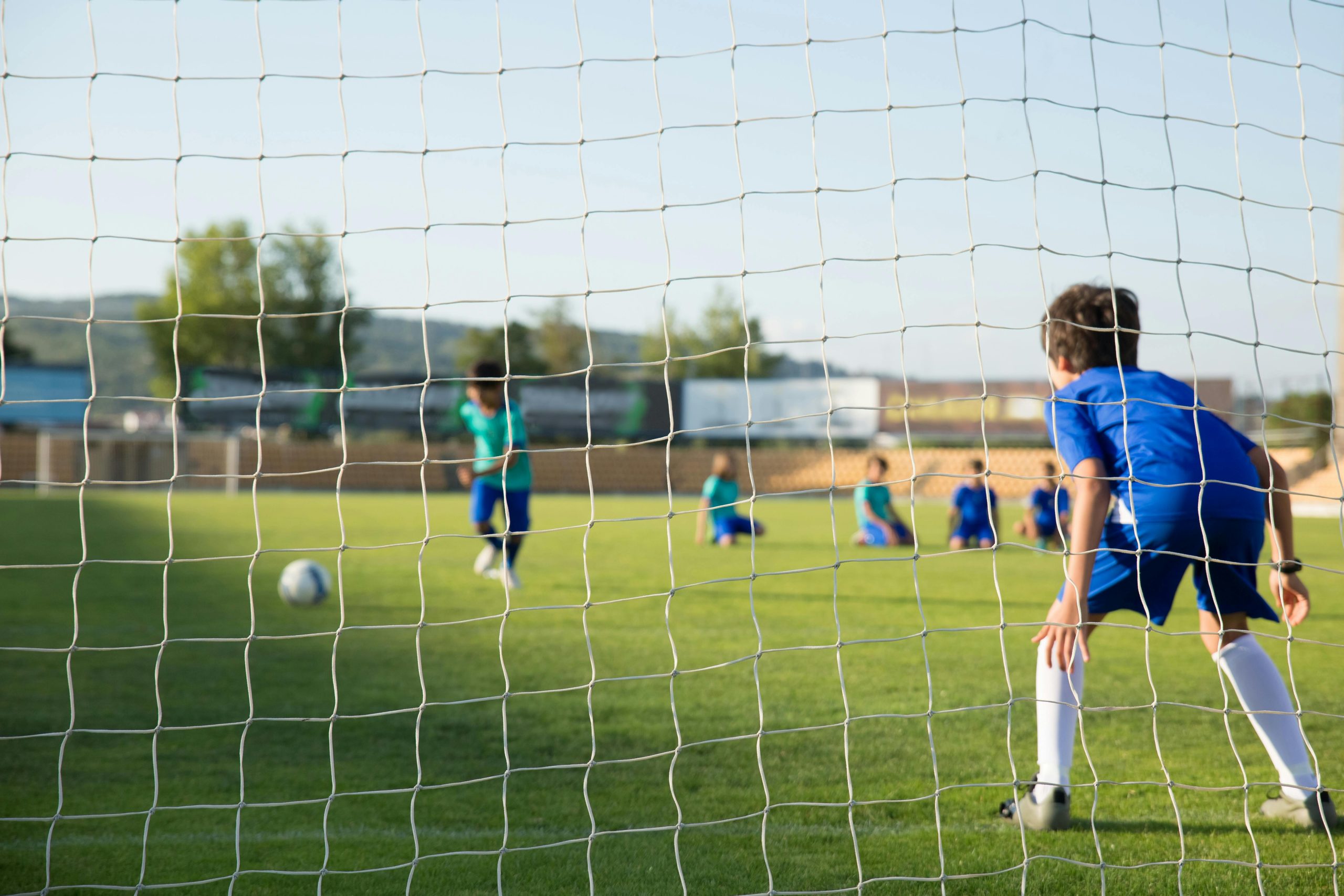In the realm of soccer, goalkeepers are often regarded as the last line of defence, playing a pivotal role in determining the outcome of a match. However, playing as a goalkeeper is not without its risks. One of the more serious injuries that soccer goalkeepers often confront is an anterior cruciate ligament (ACL) injury. The severity of this injury can significantly dampen a player’s career if not addressed properly. In recent years, there has been an increasing focus on sport-specific rehabilitation designed to aid recovery and restore functionality post-ACL injury. But how effective is it? In this article, we will delve deeper to evaluate its effectiveness, guided by studies and analyses from trusted sources like PubMed and Google Scholar.
An Analysis of ACL Injuries in Soccer Goalkeepers
In order to understand the effectiveness of sport-specific rehabilitation for ACL injuries, it’s crucial to first understand the nature and frequency of these injuries in soccer goalkeepers.
Cela peut vous intéresser : How Can Periodized Nutrition Support Build-Up Phases in Professional Boxers?
According to a study published on PubMed, an ACL injury is one of the most devastating injuries a soccer player can sustain. It is often caused by a sudden change in direction or deceleration, which are movements frequently performed by goalkeepers during a game.
A comprehensive analysis of players’ injuries revealed that goalkeepers are at increased risk of ACL injuries compared to other players. This finding suggests that the nature of their role, which includes high-risk movements such as diving, jumping, and quick rotations, contributes to this escalated risk.
En parallèle : How Can Resistance Band Exercises Improve Serve Velocity for Junior Tennis Players?
Moreover, the severity of an ACL injury lies in the significant time it requires for recovery, often leading to extended periods away from the game. This can negatively affect the player’s performance and career progression.
The Role of Sport-Specific Rehabilitation
As you may understand, the aftermath of an ACL injury can be quite daunting for the injured player. That’s where sport-specific rehabilitation comes into play. This specialized form of therapy is designed with the unique needs of the athlete in mind, taking into account the specific demands and movements of their sport.
An analysis of various studies accessible via Google Scholar suggests that sport-specific rehabilitation is a promising approach in the management of ACL injuries. It aims to restore the athlete’s previous level of performance by addressing not just the physical injury, but also the psychological aspects that may impact the player’s confidence.
In the case of soccer goalkeepers, the rehabilitation program is often tailored to improve agility, strength, balance, and coordination – all necessary skills for a successful return to the game. The program also includes strategies to prevent re-injury, a significant concern for many athletes post-ACL surgery.
The Impact of Sport-Specific Rehabilitation on Performance
When it comes to evaluating the effectiveness of sport-specific rehab for ACL injuries, the proof is in the performance. The key question is: does this type of rehabilitation enable soccer goalkeepers to regain their pre-injury performance levels?
According to a study available on PubMed, players who underwent sport-specific rehabilitation after an ACL injury showed notable improvements in their performance. Moreover, they were able to return to the field in less time compared to those who followed a generic rehabilitation program.
However, this doesn’t mean that their performance post-rehabilitation was identical to their pre-injury performance. Some studies indicated that certain aspects of performance, like agility and speed, took longer to recover. This emphasizes the importance of patience and persistence in the rehabilitation process.
The Significance of Professional Guidance
While sport-specific rehabilitation appears promising, it’s important to note that its success heavily depends on the guidance of skilled and experienced professionals.
Appropriate application of sport-specific rehab requires thorough knowledge of sports med principles, an understanding of the athlete’s specific sport, and proficiency in designing and implementing effective rehabilitation plans. Therefore, the role of a professional in mediating the rehab process cannot be overstated.
A thorough analysis of ACLR (ACL Reconstruction) cases in professional soccer players revealed that the quality of professional guidance significantly influenced the player’s recovery time and post-injury performance. Thus, the effectiveness of sport-specific rehabilitation is not solely about the program itself, but also the expertise of the professionals delivering it.
As soccer continues to evolve, it’s imperative that rehabilitation strategies keep pace. A deeper understanding of sport-specific rehabilitation for goalkeepers with ACL injuries can pave the way for improved recovery outcomes, promising a quicker and safer return to the sport they love.
The Connection Between ACL Injuries and Playing Time
To delve deeper into the specifics of ACL injuries in soccer goalkeepers, let’s look at the correlation between the minutes played by these athletes and the risk of injury. As per a study that we accessed on PubMed, there is a strong connection between the two. The more minutes a goalkeeper plays, the higher their risk of an ACL injury.
This connection can be attributed to the physical strain and fatigue that comes with playing for extended periods. Continuous play without adequate rest can lead to overuse injuries, and with the demanding role of a goalkeeper, the risk of an ACL injury becomes even more significant.
The study reveals that goalkeepers who played for more than 3000 minutes in a year were more likely to sustain an ACL injury compared to those who played less. This finding emphasizes the importance of carefully managing a goalkeeper’s playing time to avoid overuse, which can lead to devastating injuries like ACL ruptures.
However, it’s not just about the minutes played. The nature of the game, the intensity of the play, and the player’s existing fitness level also contribute to the injury risk. Therefore, injury prevention should be a multifaceted approach, involving not just adequate rest, but also regular fitness assessments and personalized training programs.
The Current State and Future of Sport-Specific Rehabilitation
The effectiveness of sport-specific rehabilitation for ACL injuries in soccer goalkeepers is quite apparent. With personalized programs and professional guidance, these athletes can return to play, often in less time and with better performance than those who follow generic rehabilitation plans.
As our exploration of various articles on Google Scholar and PubMed shows, sport-specific rehabilitation has been a game-changer in sports medicine. But, does it stop here? Certainly not.
The field of sports medicine is constantly evolving with new research, technologies, and methods. In the coming years, injury prevention and rehabilitation will become even more specialized, focusing on individual athletes’ needs and demands of their specific sports.
Moreover, an increased emphasis will be placed on the psychological aspects of injury recovery. As we’ve noted, an ACL injury can be a significant psychological impediment for soccer players, affecting their confidence and performance. Future rehabilitation programs will likely integrate more psychological support to help athletes overcome these challenges.
Conclusion
In essence, sport-specific rehabilitation plays an integral role in managing and overcoming ACL injuries in soccer goalkeepers. It holds the promise of a more effective recovery and a quicker return to play. However, its effectiveness is largely dependent on professional guidance from experts adept in sports medicine.
The risk of an ACL injury is often tied to the demands of the goalkeeper’s role and their playing time. Thus, injury prevention should be a key concern for teams and coaches, involving strategies to manage play minutes and address particular health and fitness needs of the player.
As indicated by articles on PubMed and Google Scholar, sport-specific rehabilitation has made significant strides in recent years. Moving forward, we can expect this field to advance even further, with a heightened focus on the psychological aspect of injury recovery and the development of more personalized rehabilitation programs.
Therefore, the future of sport-specific rehabilitation for soccer goalkeepers with ACL injuries seems promising. By ensuring the continued evolution of rehabilitation methods and strategies, we can support these valuable players in their journey back to the field, more confident and prepared to face the challenges of the sport they love.



